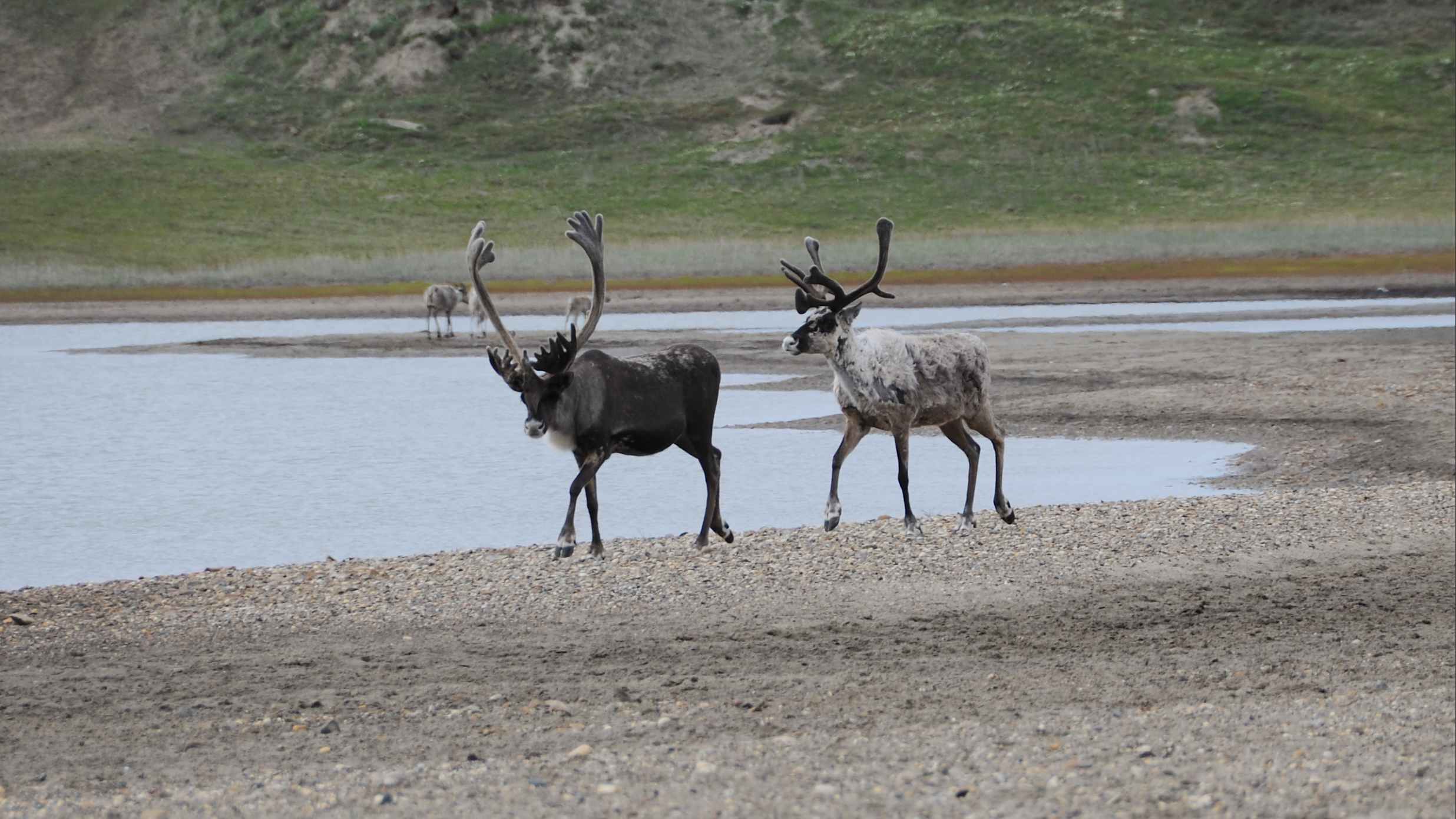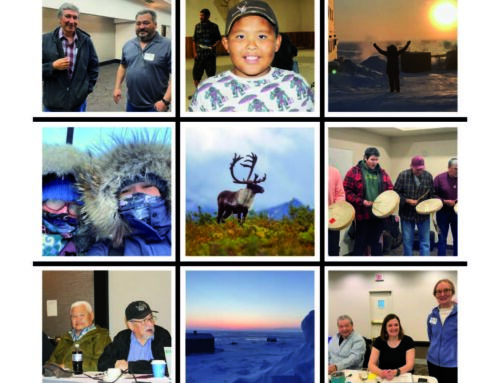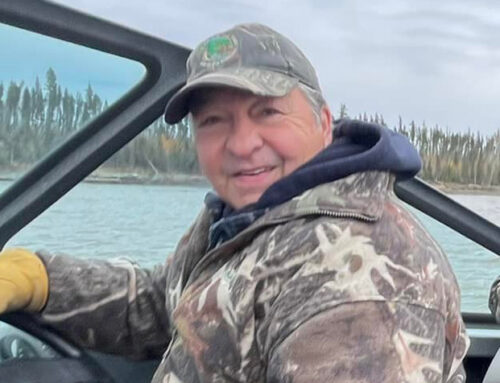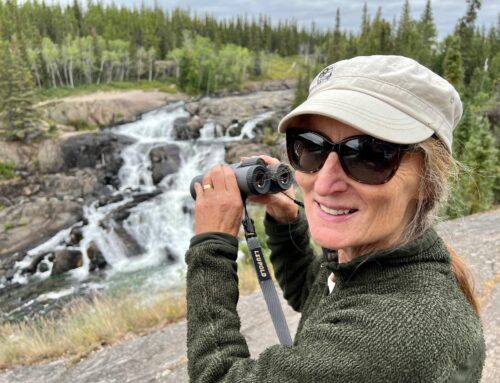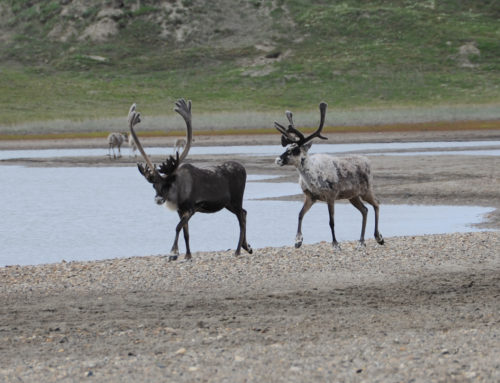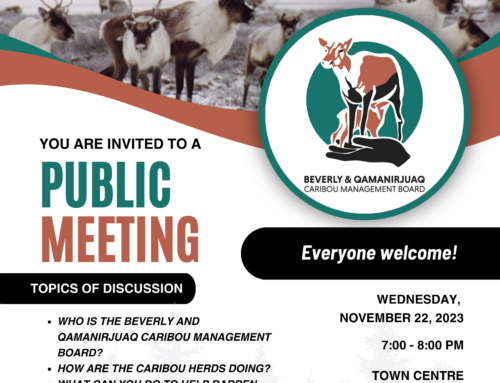March 8, 2021 – The Beverly and Qamanirjuaq Caribou Management Board (BQCMB) is concerned about many recent examples of irresponsible hunting practices along the winter road to the diamond mines in the Northwest Territories.
BQCMB Chair Earl Evans raised the alarm after witnessing the actions firsthand. “I saw every regulation in the book being violated,” he says. “Snowmobiles chasing caribou, people shooting into the herds, hunters using the wrong calibre of rifle required to make a clean kill and/or not retrieving their kills, pollution, and outright dangerous hunting.”
The easy access provided by the winter road, allowing large numbers of hunters to descend on the area, and too few conservation officers in a vast area has created a situation in which enforcement and harvest monitoring efforts are inadequate.
“It happens year after year,” Evans says. “But in my 50 years observing this type of activity, this is the worst I’ve seen.”
Wherever caribou seem plentiful and access is easy, and hunters are inexperienced, respectful hunting practices tend to decrease. This also results in the animals being in poor health due to constantly being harassed, says Evans.
The BQCMB has long promoted respectful hunting and urges chiefs, elders and community leaders to communicate responsible hunting practices to their members, and to increase efforts to educate inexperienced hunters about sustainable caribou hunting.
The Board understands the Government of the Northwest Territories (GNWT) has increased the number of officers enforcing rules supporting conservation of barren-ground caribou herds.
Chair Evans is collaborating with senior officials with GNWT Environment and Natural Resources on building awareness and tackling the ongoing problem.
“When there are many caribou accessible in an area, everybody wants to hunt,” says Evans. “I understand that. But there is a proper way to hunt and traditional harvesting protocols to follow. And the herds are getting smaller and smaller. People need to understand that the only way for the caribou harvest to be sustainable is to hunt respectfully. We all share in this responsibility to make sure there are caribou for the next generation.”
Some of the herds have been mixing closely together on NWT winter range this year, so the negative impacts resulting from this situation have the potential to affect Indigenous hunters from across the Beverly and Qamanirjuaq ranges, beyond the NWT.
Evans says there are several more weeks of caribou hunting, peaking in late March, so now is the time to create awareness. “I feel bad for the hunters out there that hunt responsibly and are in the same area where this is happening.”
For more information, contact:
Lynne Bereza
Editor, Caribou News in Brief
204-871-0517
Email: caribounews@outlook.com
or
Ross Thompson
BQCMB Executive Director
Email: rossthompson@mymts.net
